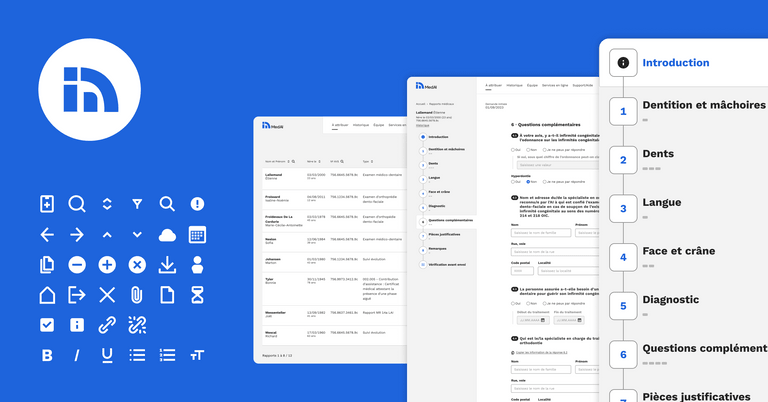From an established but very complicated and slow process…
In this article, we will take a look at disability insurance, also known as DI (Disability Insurance). In a field as sensitive to data protection as social medicine, progress in digitalizing the exchange of medical information is often slow. For instance, in the past, medical reports between doctors and the cantonal offices were handled entirely on paper. Doctors received forms to fill out, which were then posted back to the office for processing. Sometimes, the reports had to be sent back and forth several times before they were finalized, delaying the process. This resulted in future DI recipients experiencing delays in their applications. It was high time for a change.
The DI office of the canton Vaud took the initiative by launching a pilot project for an online platform, with support from the Federal Social Insurance Office (FSIO). The DI offices of Fribourg and Neuchâtel were also incorporated into the project. We were fortunate to support this digitalization initiative from the very beginning, in 2021, when a preliminary project identified the need for an online platform for the medical profession. We began by analyzing the existing IT infrastructure and process. Additionally, we conducted interviews and prototype testing with relevant stakeholders, doctors and managers to properly identify user needs. Following a public tender in 2023, UX work began in September of that year and the development stage was launched in 2024.
…to an online tool that makes life easier
Given the specific challenges related to protecting highly sensitive data and the lack of existing applicable solutions, we opted for a custom development approach using Python, Django and Vue.js technologies. This allowed us to maintain control over the project and its evolution. Instead of using Word documents, we developed a standard form generator tailored to the specific requirements of the process, for example in terms of date formatting, attachments, and exclusive access rights for managers. Confidentiality was a vital element, so we collaborated with Redguard, a specialist company that ensured all data protection and security aspects were fully covered. One key element of this process was identifying users via the identity provider HIN (Health Info Net), which is widely used in the healthcare sector.

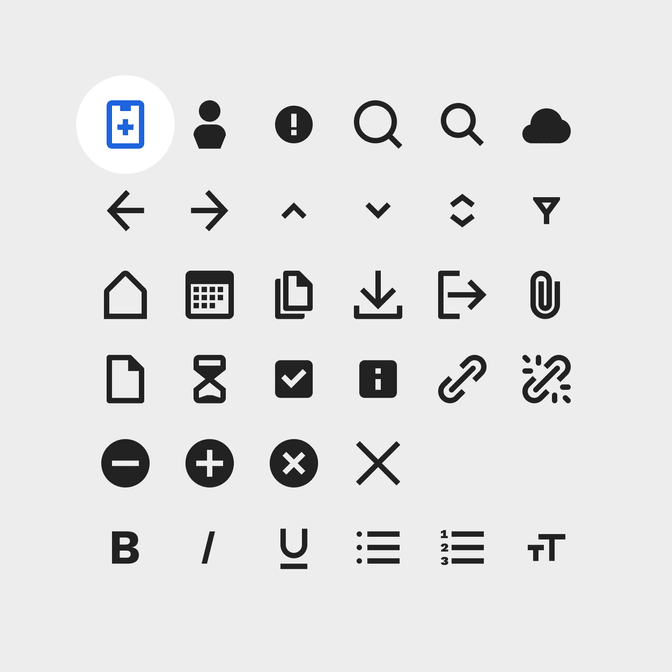
This online platform operates within a specific IT environment, and one of the challenges was to integrate our tool seamlessly into the existing infrastructure. Custom development was the right choice, as it needed to interact with the internal management tool used by DI offices. We worked closely with GILAI, the company that developed and maintains the tool, to set up APIs that facilitate communication between the tools. This integration enables the reception of patient data and the transmission of medical reports in PDF format (required by their electronic document management tool). However, custom development is not about reinventing the wheel; it’s about taking a pragmatic approach to integrating tried-and-tested tools.
In the future, this pilot project will allow us to offer a practical solution for various cantonal offices and doctors throughout the country. The first version of the MedAI platform is already online, allowing doctors to create an account and start filling out their first medical reports. Once an account is created, medical reports are automatically sent to the doctor in digital format, eliminating the need for paper mail. In the second phase, this type of process management will also be extended to institutional facilities, hospitals, and medical centers, thanks to the interface.
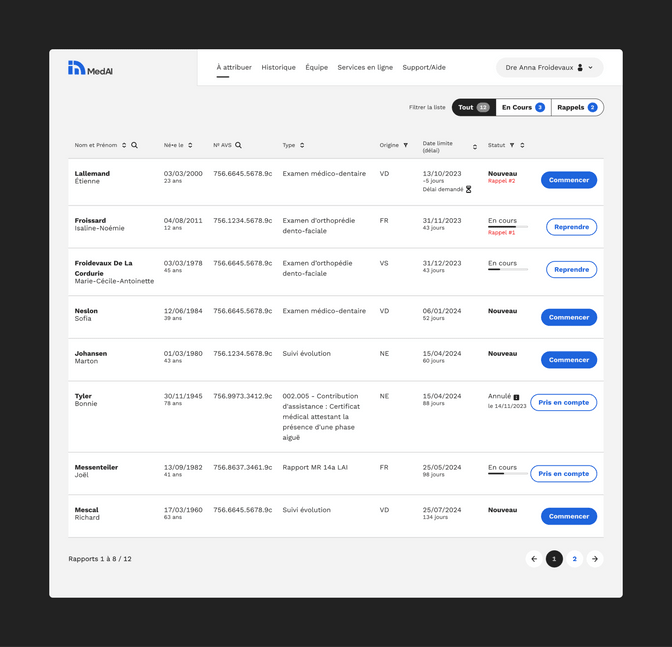
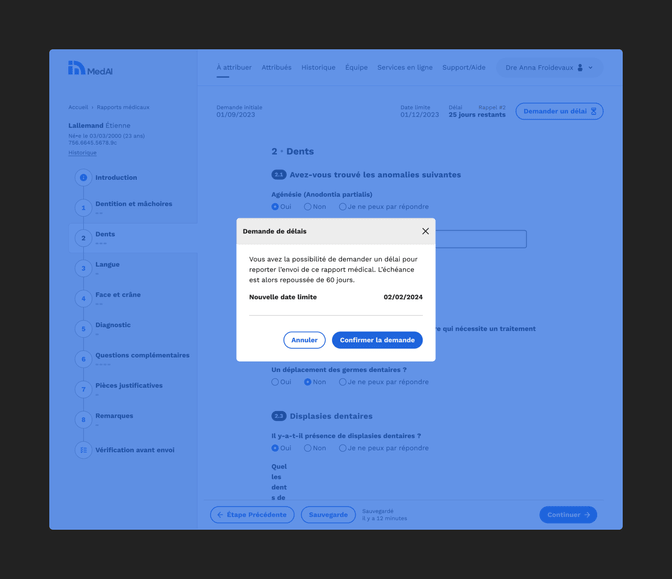
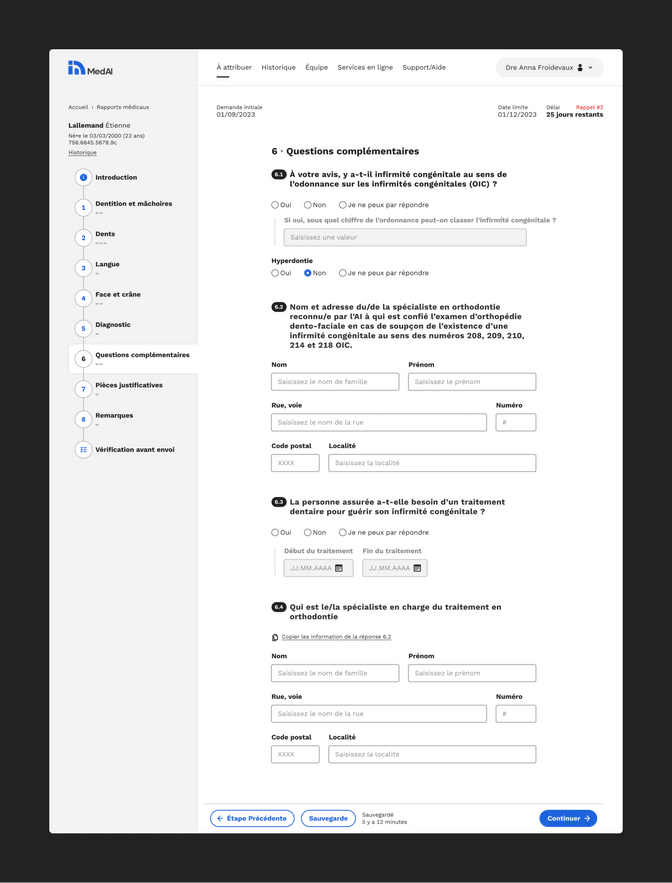
Initial feedback has been very positive, with the new tool meeting the expectations of both doctors and the cantonal offices that were responsible for initiating this procedure. Thanks to excellent collaboration between all project stakeholders and an agile approach, we were able to meet a tight deadline, with the initial version going online just one year after work began.
Receiving, drafting attaching documents, and updating medical reports has never been easier than with MedAI, all of this in combination with secure data protection and faster handling of DI beneficiary requests. It’s a fantastic example of digitalization, representing real progress for all involved in disability insurance.

